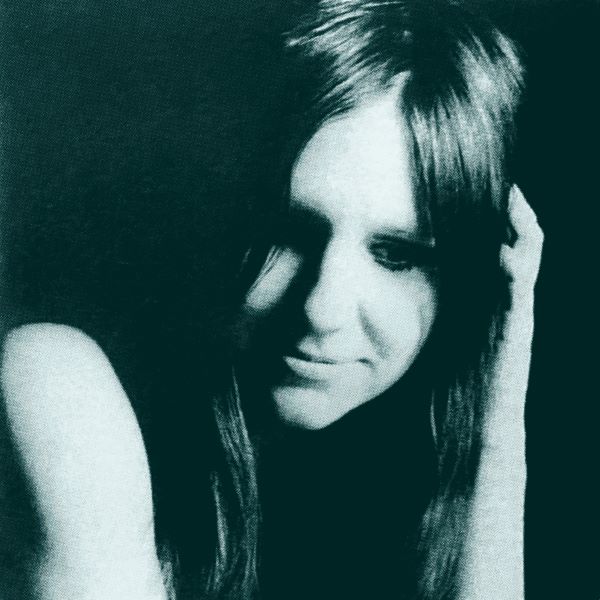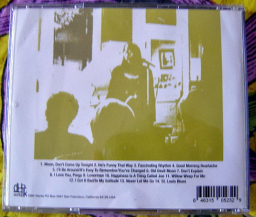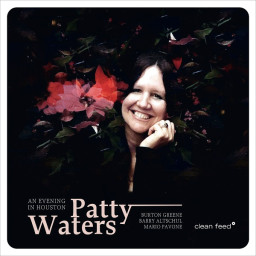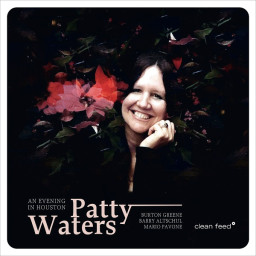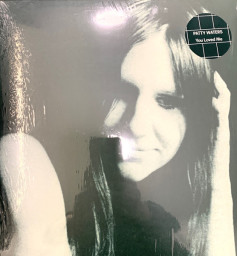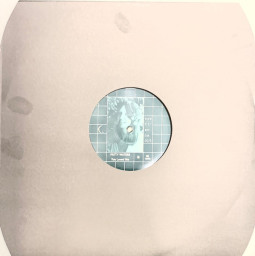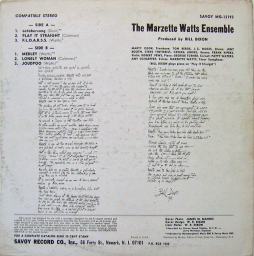|
There is something ultimately redemptive in hearing
musicians playing live, where all protective gear in the studio is gone, where
there is no mix to fix, where they are just standing in front of an audience,
pouring it out, letting it come through them. Too often live recordings are not
live at all, as the delicate and sometimes evident flaws that make a performer
human are eliminated, erased, and sent into the dustbin of history, thus
rendering both the performance inaccurate and the performer somehow less than
what she or he is. In other words, the beauty is in the imperfections
themselves. Happiness Is a Thing Called Joe by Patty Waters is a true
live album. Recorded at a date in San Francisco in 2002, the album is a jazz
tribute to Billie
Holiday and includes 14 standards. Waters is accompanied by pianist Leonard
Thompson and bassist Seward
McCain. There is no resemblance to the fiery singer of "Black Is the Color
of My True Love's Hair" here. This is the voice of a seasoned interpreter, a
singer who despite her somewhat limited range (there's a rasp in the lower end
of her voice and a thin, brittle-like quality in its timbre) has an uncanny
phrasing ability, singing the lyric of a classic song straight and from the
heart and getting at its sinew and marrow. Check "Good Morning Heartache," where
the opening line is one of such acceptance that the listener winces at the pain
in the grain of her voice. Yet on "Old Devil Moon" she wrings the wry romance
with humor and a rough-hewn grace; it's immediate, full of the right kind of
anticipatory tension, and a dangerous delight. Waters' respect and honor for the
tradition of these songs is evident. Like Holiday,
she approaches the songs as if they were secret texts whose truths could be
revealed by careful emotive investigation. Her reading of "Willow Weep for Me"
is simply breathtaking. It's so frail and vulnerable, and full of a brokenness
and desire whose name can only be acknowledged, not spoken let alone touched.
She digs deep into the blues vocabulary for the expression necessary and comes
up with it, communicating the cracked-heart blues of unrequited love with
accuracy, verve, and raw tension. Happiness Is a Thing Called Joe is an
accurate, in-your-face recording. It's full of tape flaws, musical
imperfections, and even errors. But therein lies its beauty and necessity, not
only as a document, but as a high-wire act at full tilt. Waters is a different
kind of singer than she used to be. Her power lies in the quiet, shimmering
timbres and colors that come from her matter-of-fact delivery. This album is a
welcome addition to her catalog.
Biography

Born: March 11, 1946
PATTY WATERS must be
acknowledged as a vocalist who has tested the limits of the human voice's
capabilities. Since her brief recording career in the mid-'6O's, she has come to
be appreciated as a vocal innovator not just in jazz but in contemporary music
as a whole. Much of her repertoire was given over to hushed piano solo ballads
in which her voice could fade to a whisper that was barely audible, but what
really attracted attention were her avant-garde outings in which she stretched
and mutated her voice with contorted shrieks and wails that could be downright
blood-curdling. She was heard in a nightclub in the early '6O's by Albert Ayler,
who recommended her to the ESP label; the first side of her 1965 debut recording
(”Sings”) was given over entirely to self-composed solo piano miniatures,
leaving listeners somewhat unprepared for the second side, which consisted
solely of her 13-minute interpretation of “Black Is the Color of My True Love's
Hair.” Building into hair-raising screams and vocal improvisations, it remains
the performance for which she is most noted. Sadly, she only recorded one more
album, the live “College Tour,” just a few months later; a more determinedly
avant-garde effort than her debut, it featured entirely different, mostly
self-composed songs. Ms. Waters often eschewed words altogether for wordless
moan-scats and wails, and opted for a fuller band backing, including appearances
by pianists Ran Blake and Burton Greene. Aside from a subsequent appearance with
Marzette Watts's ensemble on a 1968 LP, nothing further was heard from her on
record until 1996, as she withdrew to Hawaii to raise her son (born in 1969) and
sang in public only sporadically for many years. She sang in the Monterey
Festival of 1999 and in 2003 at New York City's Vision Festival and the Tolbooth
Festival in Scotland, and in 2006 she toured in Belgium and Paris with the great
bassist Henry Grimes. Patty's mystique has been enhanced over the decades by the
rarity of her two ESP discs, recently reissued on CD in Germany. Diamanda Galas
names Patty Waters as her biggest influence, and she is also publicly revered by
Christina Carter and Patti Smith. Patty Waters now lives in Santa Cruz,
California and very much wants to continue with her music life. Patty Waters can
be reached at PattyWatersSings@hotmail.com. [NOTE: This updated biography is
based on one written by Richie Unterberger for “All Music Guide.”
|
